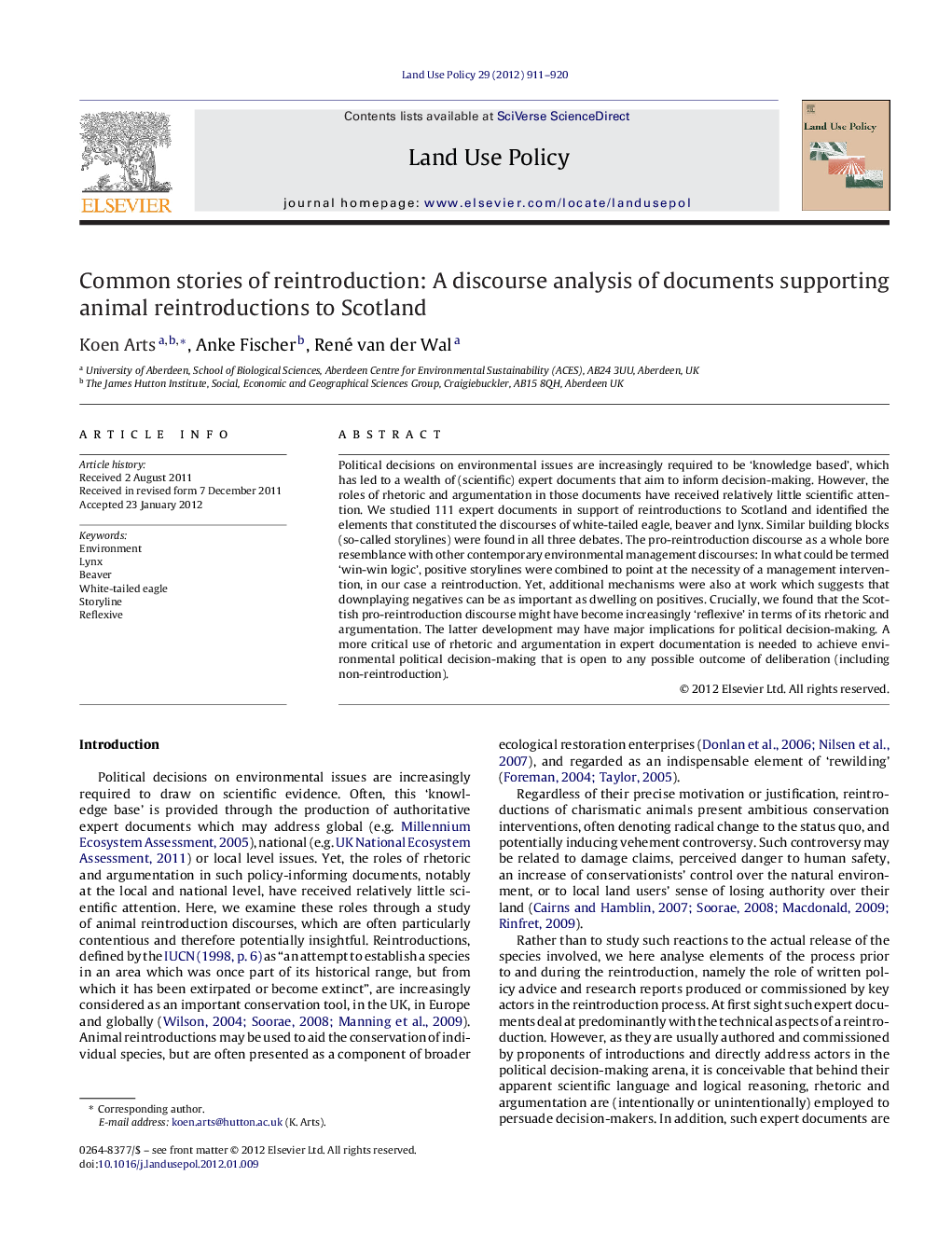| Article ID | Journal | Published Year | Pages | File Type |
|---|---|---|---|---|
| 93343 | Land Use Policy | 2012 | 10 Pages |
Political decisions on environmental issues are increasingly required to be ‘knowledge based’, which has led to a wealth of (scientific) expert documents that aim to inform decision-making. However, the roles of rhetoric and argumentation in those documents have received relatively little scientific attention. We studied 111 expert documents in support of reintroductions to Scotland and identified the elements that constituted the discourses of white-tailed eagle, beaver and lynx. Similar building blocks (so-called storylines) were found in all three debates. The pro-reintroduction discourse as a whole bore resemblance with other contemporary environmental management discourses: In what could be termed ‘win-win logic’, positive storylines were combined to point at the necessity of a management intervention, in our case a reintroduction. Yet, additional mechanisms were also at work which suggests that downplaying negatives can be as important as dwelling on positives. Crucially, we found that the Scottish pro-reintroduction discourse might have become increasingly ‘reflexive’ in terms of its rhetoric and argumentation. The latter development may have major implications for political decision-making. A more critical use of rhetoric and argumentation in expert documentation is needed to achieve environmental political decision-making that is open to any possible outcome of deliberation (including non-reintroduction).
► We analysed policy-related expert documents on animal reintroductions to Scotland. ► In particular, we examined rhetoric and argumentation by identifying storylines. ► The pro-reintroduction discourse uses a ‘win-win logic’ but also downplays negatives. ► As a whole, this discourse seems to become increasingly ‘reflexive’. ► This could have major detrimental impacts on environmental political decision-making.
